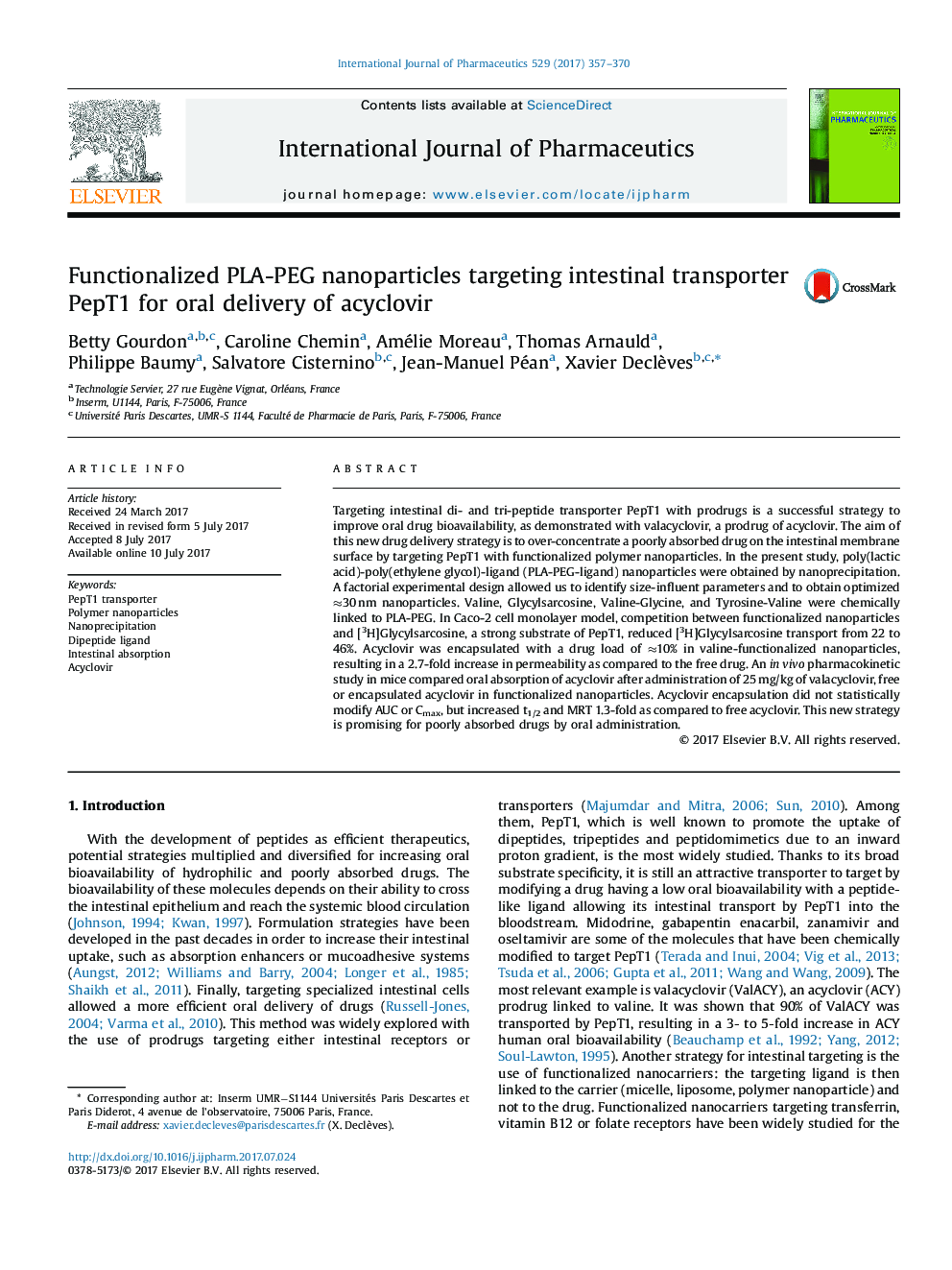| Article ID | Journal | Published Year | Pages | File Type |
|---|---|---|---|---|
| 5550215 | International Journal of Pharmaceutics | 2017 | 14 Pages |
Targeting intestinal di- and tri-peptide transporter PepT1 with prodrugs is a successful strategy to improve oral drug bioavailability, as demonstrated with valacyclovir, a prodrug of acyclovir. The aim of this new drug delivery strategy is to over-concentrate a poorly absorbed drug on the intestinal membrane surface by targeting PepT1 with functionalized polymer nanoparticles. In the present study, poly(lactic acid)-poly(ethylene glycol)-ligand (PLA-PEG-ligand) nanoparticles were obtained by nanoprecipitation. A factorial experimental design allowed us to identify size-influent parameters and to obtain optimized â30Â nm nanoparticles. Valine, Glycylsarcosine, Valine-Glycine, and Tyrosine-Valine were chemically linked to PLA-PEG. In Caco-2 cell monolayer model, competition between functionalized nanoparticles and [3H]Glycylsarcosine, a strong substrate of PepT1, reduced [3H]Glycylsarcosine transport from 22 to 46%. Acyclovir was encapsulated with a drug load of â10% in valine-functionalized nanoparticles, resulting in a 2.7-fold increase in permeability as compared to the free drug. An in vivo pharmacokinetic study in mice compared oral absorption of acyclovir after administration of 25Â mg/kg of valacyclovir, free or encapsulated acyclovir in functionalized nanoparticles. Acyclovir encapsulation did not statistically modify AUC or Cmax, but increased t1/2 and MRT 1.3-fold as compared to free acyclovir. This new strategy is promising for poorly absorbed drugs by oral administration.
Graphical abstractDownload high-res image (86KB)Download full-size image
